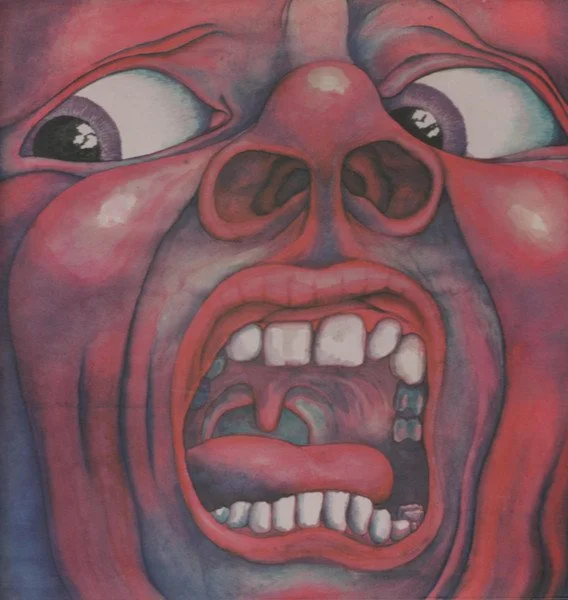When: Released November 18, 1974
Why? Although I’m a fan of Peter Gabriel’s solo career, I’ve never heard him within the context of his group, Genesis. This was his final album with the band.
What? A concept album of progressive rock featuring 23 songs, lasting 93 minutes.
First Impressions: Given my very mixed experiences with prog-rock throughout this project, I’m going into this one a bit apprehensive. I want to like it, but I’m not really expecting to.
I’ll cut to the chase: I enjoyed fewer than five minutes of this 93-minute double album.
Concept albums are built on a narrative story or cohesive theme expressed through most if not all of the songs. (Why “Tommy” is a concept album and “Sgt. Pepper’s Lonely Hearts Club Band” is not.) Here, the story Gabriel is (supposedly) telling through his lyrics is, in a word, bonkers. Although he elaborates on it in the album’s lengthy liner notes (available online these days), it’s a stream-of-consciousness fever dream of the absurd that avoids internal logic, makes no sense as a narrative, and doesn’t seem to be making any actual points beyond the obvious ones. I can’t imagine what the band expected people to make of this content without having both the lyrics and the explanatory notes in front of them. (And even then…)
Looking back at the album, keyboardist Tony Banks apparently told one interviewer that he believes the album’s concept is its weakest part. I have to agree. It is so lacking in cohesion and clarity that it might as well not exist at all. And yet—and this brings me to my biggest frustration with this album—without this concept (shaky as it is) the songs themselves simply do not stand up on their own as songs.
The songs here are, for the most part, incoherently vague in their storytelling. There is almost no repetition within them, no melodic themes that develop, little to make one section in one song distinct from another instrumental section in another song. These songs propel us on a journey during which the scenery is constantly changing and nothing reminds us of home. From that perspective, I don’t believe these “songs” function as songs at all. What they do do is deliver lots of wordplay (which is not always successful, except to draw attention to itself) and frequent rhyming for the sake of rhyming (not for the sake of the message being delivered).
The performances, surprisingly, are outstanding. Everything sounds great production-wise and the performances are enthusiastic and inventive, particularly Gabriel’s vocals and Phil Collins’s drums. It all just seems wasted on this material. I can’t imagine what led each of the band members to invest themselves so fully in a project like this—a project for which I can find very little point.
While calling them favorites might be a stretch, I appreciated the songs here that did something different, including: “The Grand Parade of Lifeless Packaging,” “Counting Out Time,” and “The Colony of Slippermen.” I was least appreciative of the instrumentals (although several of them sounded like direct inspirations for some of Mike Oldfield’s music, which I love), particularly “The Waiting Room.”
So? If this is what early Genesis sounds like, I have no interest in listening further. I love songs and I love stories; for me, this album includes neither.
I’m glad I can check this one off the list. But listening was more like fulfilling a requirement so I could complete the course. And it’s not a course I want to repeat.

